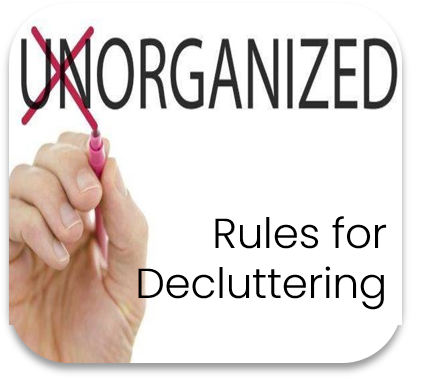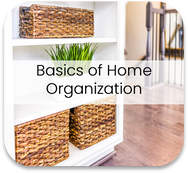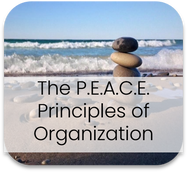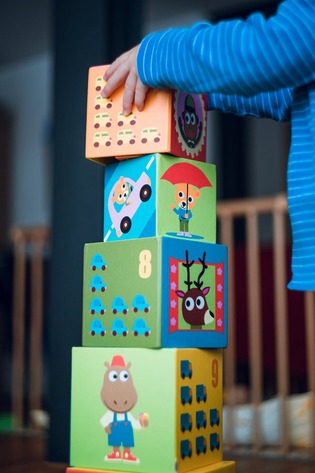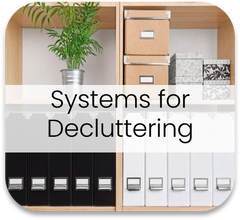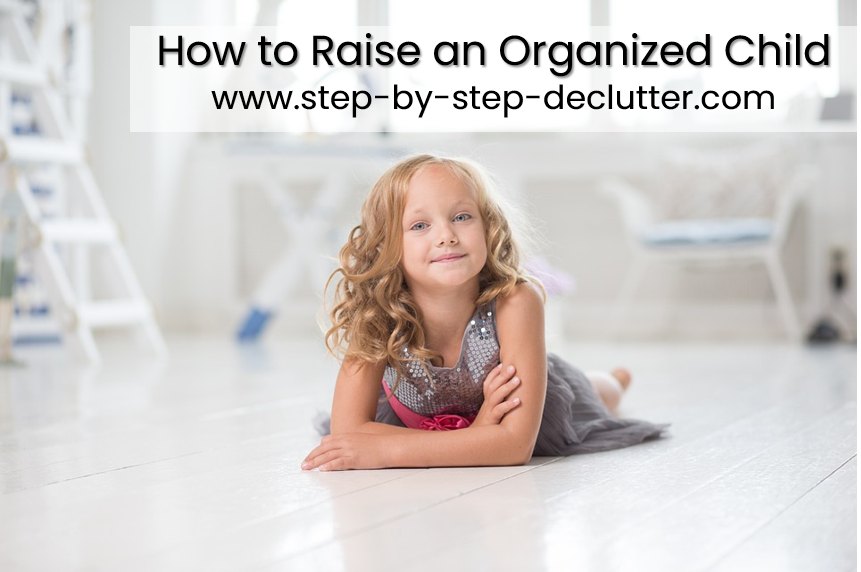How to Raise an Organized Child: 5 Simple Strategies
In her popular book, The life-changing magic of tidying up, Japanese organizer Marie Kondo points out that the main reason so many people lack basic organization skills is because they were never taught them. In my experience as a professional organizer, I have found this statement to be generally true. One of the most common phrases I hear from clients seeking my help is, “I don’t know where to start.”
The same is true for our children. Often, we tell them to clean their rooms, but how often do we actually teach them what we mean when we say that? Of course, to teach any skill one needs to possess a degree of aptitude in the subject oneself. That said, even if you aren’t someone for whom organization comes naturally, you can help your children (and in the process yourself) to develop organization skills that will serve them well throughout their lives.
The same is true for our children. Often, we tell them to clean their rooms, but how often do we actually teach them what we mean when we say that? Of course, to teach any skill one needs to possess a degree of aptitude in the subject oneself. That said, even if you aren’t someone for whom organization comes naturally, you can help your children (and in the process yourself) to develop organization skills that will serve them well throughout their lives.
This page contains an affiliate link.
|
|
Organization Resources |
|
If you don’t see yourself as an organized person, the thought of teaching your children to be organized can be intimidating. The first step in this process is to purge your negative feelings regarding your own capabilities. Begin by accepting and believing that you can be an organized person. You’ve got this. I know it.
Click on the icons below to review some of the basic principles of organization.
Click on the icons below to review some of the basic principles of organization.
|
|
5 Simple Strategies for Raising an Organized Child |
|
Set the Example |
|
The best and most effective way to raise an organized child is to be organized. Whether consciously or unconsciously, children emulate what they see. If, in you, they see an organized, mindful approach to managing time, activities, and stuff, they will tend to approach things in an organized, mindful way.
|
|
You Can Do It! |
|
|
I recognize, this may not be true of all children; I myself have more than one child who chooses to be sloppy with his/her space. This is not because they do not know how to be organized. They do, and interestingly enough, they keep their work environments well organized and help to contribute to the overall organization of the work place.
One thing is certain: if all children see is a chaotic approach to managing one’s time and possessions, they are far less likely to become organized themselves. It happens, but it’s rare. Proverbs 22:6 teaches, “Train up a child in the way he should go, and when he is old, he will not depart from it.” To this I say “amen”. |
Teach Why |
|
The best parenting advice my husband and I ever received was this: Don’t just dictate rules to your children. Teach them the reason behind everything you ask of them. It’s tempting as a parent, when asked ‘why?’ to respond with the show stopping “because I said so.” But what does this really teach a child? Perhaps only that parents take some sort of pleasure in making up rules simply to torment their children.
By taking the time (and it doesn’t take long) to explain why you want things done a certain way, you not only demonstrate respect for your children. You also model a habit of mindfulness. You are also far more likely to earn their willing cooperation. We are all more inclined to comply when we understand the why behind whatever we’re being asked to do.
There is one more important reason to teach children the reasoning for your requests and expectations. Understanding the reason for doing something a certain way allows a child to take ownership of a particular attitude or behavior. What I mean is this. If a child just does whatever his or her parents say without really understanding why they have the expectations they do, then in the child’s mind they are the parents’ rules and values. If, however, the child understands why parents expect and value certain behaviors, the child can then make an informed decision about embracing those behaviors as his/her own.
If you want to raise an organized child, then teaching them to recognize and appreciate the benefits of organization is an important part of the process. There are many marvelous reasons to learn to be organized. Here are just a few: Ten Reasons to Get Organized.
By taking the time (and it doesn’t take long) to explain why you want things done a certain way, you not only demonstrate respect for your children. You also model a habit of mindfulness. You are also far more likely to earn their willing cooperation. We are all more inclined to comply when we understand the why behind whatever we’re being asked to do.
There is one more important reason to teach children the reasoning for your requests and expectations. Understanding the reason for doing something a certain way allows a child to take ownership of a particular attitude or behavior. What I mean is this. If a child just does whatever his or her parents say without really understanding why they have the expectations they do, then in the child’s mind they are the parents’ rules and values. If, however, the child understands why parents expect and value certain behaviors, the child can then make an informed decision about embracing those behaviors as his/her own.
If you want to raise an organized child, then teaching them to recognize and appreciate the benefits of organization is an important part of the process. There are many marvelous reasons to learn to be organized. Here are just a few: Ten Reasons to Get Organized.
Utilize Systems |
|
A system is simply a method for doing something. Systems are a great way to teach organization to children. You can have systems for doing recurring tasks as well as systems for preventing clutter or just being able to find things. Work with your children to set up systems for a variety of things. Some suggestions include:
|
Establish Expectations |
|
Creating a variety of systems will not be enough on its own to ensure your success in raising an organized child. It’s also necessary to establish expectations with regard to the implementation and upkeep of those systems. I’ll give you an example. When my three oldest children were young, I ran a day care out of my home. The playroom was well organized with bins for each different type of toy, and all the bins were labeled with words and pictures. The expectation was that the playroom had to be picked up before the children could watch a show on TV, do a craft project, play outside, etc. It didn’t take long for new children to adapt to the expectation. They would say to me, “If we pick up the playroom, can we…?”
By pairing expectations with systems, you increase the likelihood that your systems will endure and be effective. You also teach children to prioritize and to care for their things. These are important traits of an organized person.
By pairing expectations with systems, you increase the likelihood that your systems will endure and be effective. You also teach children to prioritize and to care for their things. These are important traits of an organized person.
Be Consistent |
|
Consistency is crucial when it comes to practicing any new skill to include becoming a more organized person. It can be tiring as a parent to enforce standards, but failing to do so leaves children confused about your expectations. When they aren’t sure what the expectations are, they will experiment with the boundaries, testing to see how little they can do before the consequences catch up with them. It’s human nature. In the absence of consistency, their rooms and your house can devolve into a cluttered, chaotic mess. By consistently utilizing systems and enforcing expectations, you can maintain a relatively clutter-free, orderly home with a limited amount of frustration.
There is another reason consistency is important in raising an organized child. It’s the old adage that practice makes perfect. As perfection is largely unattainable, a more accurate statement might be that practice makes permanent. If you want organization to become second nature to your children, they must consistently practice being organized. Inconsistent behavior yields inconsistent results.
There is another reason consistency is important in raising an organized child. It’s the old adage that practice makes perfect. As perfection is largely unattainable, a more accurate statement might be that practice makes permanent. If you want organization to become second nature to your children, they must consistently practice being organized. Inconsistent behavior yields inconsistent results.
Organization is a skill that benefits every person, no matter what their age. The younger a person is when they begin to develop organization skills, the better. While raising an organized child requires effort, it is immanently achievable for every parent. Try implementing the strategies outlined here in your pursuit of this worthy goal.
Proudly powered by Weebly

